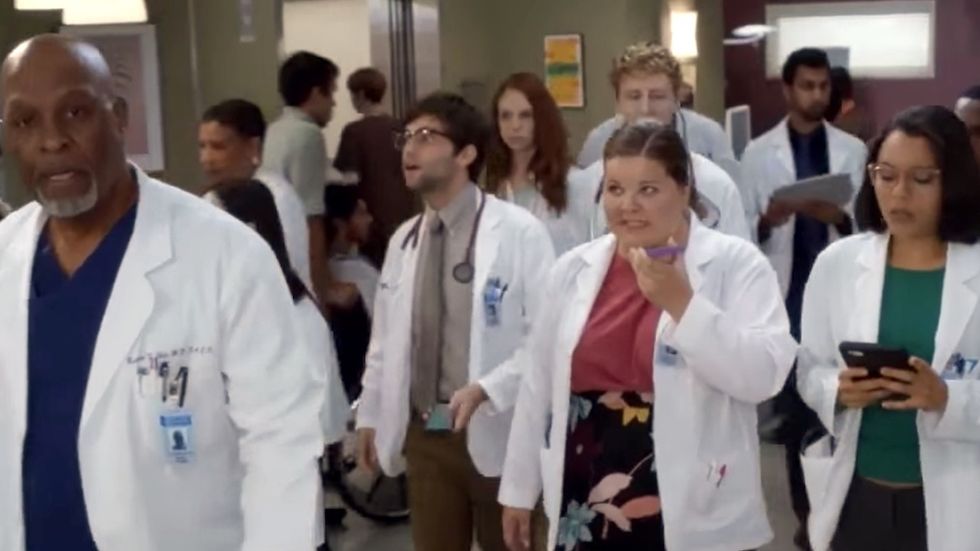If you liked your science classes in high school, are smart, and want to help people, you probably have considered being a doctor, just like around 1,400 other students in Baylor's Class of 2022. Blinded by unrealistic portrayals in the media, a noble altruism, and general naivete, few stop to consider the real-life implications of the long journey to become a doctor and if it is right for them. Therefore, the majority of entering pre-med freshmen change career paths within two years, and for a variety of legitimate reasons besides not being able to handle the heavy workload.
So, if you are a high school student considering being pre-med (or another form of pre-health), here is a realistic list of pre-health related commitments of a current freshman premed.
1. General Biology/General Chemistry/Physics/Calculus and Labs
Notorious for being "weed-out classes," entry-level math and science courses are no joke. Although on the surface the material seems to be the same as your high school classes (especially APs), professors demand a much deeper understanding of the material at a much faster pace and often go beyond what is taught in high school. Between reading the chapters, taking notes, solving problem sets, and reviewing, keeping up with the lectures requires consistency, dedication, and many hours outside the classroom. Oh, and don't forget about labs, which are separate time blocks in your schedule, and their coursework: pre-labs and lab reports.
2. PHP 1105: Foundations of Medicine
A mandatory primarily online class for pre-med students at Baylor, PHP 1105 discusses how to become a doctor, all the way from the undergraduate level to the application process to medical school years to residency and fellowships and more. Full of useful information from the textbook and video lectures, PHP 1105 also requires students to attend in-person a variety of workshops, speaker events, and socials over the course of the semester. Another requirement is to join an approved pre-health student organization.
3. Student Organizations
Given that part of PHP 1105 is to join a prehealth-specific student organization, involvement in a pre-med extracurricular is expected. We have several on campus, such as American Medical Students Association (AMSA), American Medical Women's Association (AMWA), the Multicultural Association of Pre-Health Students (MAPS), Medical Service Organization (MSO), the Christian PreHealth Fellowship (CPF), and Baylor University Medical Ethics Discussion Society (BU MEDS) among others. In order to be an active member, students must attend general meetings and social events and usually do community service hours as well. These student organizations are great opportunities to meet other pre-med students (especially upperclassmen) and demonstrate a commitment to the medical field. However, it is another time commitment that needs to be juggled in a busy college life.
4. Volunteering
Heavily emphasized on applications to medical school, getting involved in consistent community service is also another common expectation of freshmen premed students. From tutoring in disadvantaged local schools to spending time with hospice patients to serving soup to the homeless to playing with abandoned cats and dogs, there are volunteer opportunities for every interest. The pre-med organizations often provide these opportunities for their members to get involved in the community, simplifying the process. However, to truly gain experience and demonstrate a genuine commitment to helping people, service should be done on a regular basis (especially weekly) instead of only the bare minimum of hours.
5. Leadership/Research/Shadowing
Leadership experience, research, and shadowing are also essential portions of a pre-med student's undergraduate experience, especially in order to determine if medicine is the right fit. However, this can be difficult to find as a first-semester freshman, but steps in the right direction can definitely be taken. Simply engaging with professors and actively participating in student organizations can go a long way into finding those leadership positions, research and shadowing opportunities later, but this requires intentionality and effort from the beginning.
Even if this seems like a lot, don't forget about non-science classes, sleep, spending time with friends, other extracurricular, possibly a job, and taking care of yourself too! Burnout is really easy, and your college experience should not be solely focused on getting into medical school. Although these commitments are often demanding, they should also be enjoyable, a reflection of a deeper passion for people and medicine, instead of just items on a checklist.

















